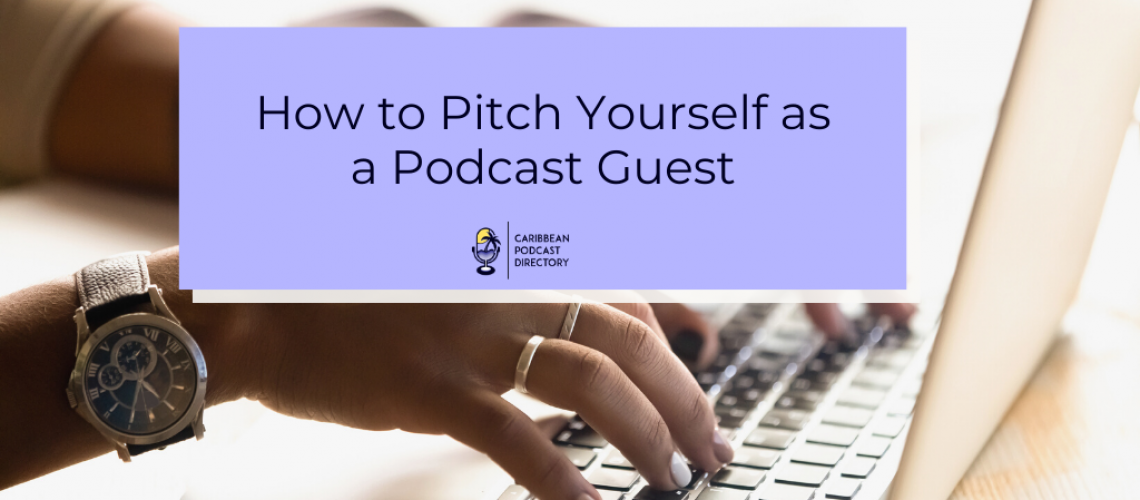Why Pitch to be a Guest?
Podcasts are everywhere and as the medium grows, being a guest on a podcast is a great opportunity to:
- Reach/grow your audience or
- Establish yourself as an expert in your industry.
When you are a guest on another podcast, you get an opportunity to speak to new podcast listeners in your target audience. Most importantly, because these listeners are already listening to podcasts, it increases the likelihood of them listening to your podcast.
So how do you get on a podcast as a guest? How do you pick the right one? As with everything, there’s a right and a wrong way to go about being a podcast guest. After doing this for almost 5 years I’ve seen my fair share of requests.
Wrong way
“Hi (host), I like your show and would love to be a guest on your show.”
Thanks,
Whatsitsname
Even if you know the host, this still is not acceptable. In addition to professionalism being good practice, you should always pitch yourself because you can’t assume people automatically know the value you bring to them and their audience. On top of that, you are asking the host to do all the work to figure out what to do with you on their show. Pitching yourself means you present yourself in a way that the person making a decision can easily see the benefit of having you on their show. Here are things to consider before you hit send on that pitch email.

Research
- Ask yourself if you are a fit for the show. This is first and foremost. Knowing the host is not reason enough to be on the show. What’s your expertise? What value do you bring to the host and show’s audience? Even if you have expertise, does it align with the show’s overall content?
- Are you pitching outside of your league too soon? The other aspect of fit is considering whether you are just starting out as a podcaster and asking to be a guest on a much larger platform. This goes without saying, creep before you walk…meaning if you’re just starting out, you may not get accepted as a guest on a top ranked podcast.
- Get familiar with the show. I’ve had people ask to be a guest to talk about a topic that I don’t cover or a topic I just recorded. So before you pitch, check if the topic was already covered. If it turns out the topic has already been covered, consider pitching a different angle/spin/point of view and it would be helpful to reference how your pitch is different from what the host already covered. A host isn’t going to have another guest on the show to talk about the same thing that a previous guest talked about.
- How do you know where to send your pitches? Check the podcast website. Does it have instructions for anyone who wants to be a guest or advertiser? Follow the instructions provided there. If there’s no formal contact form to submit a request to be on the show, send an email. You’ll need to research a contact email. Usually this could be found somewhere on the website or social media. If however, the podcast does not have instructions on how to be a guest on their website, reaching out via social media DM about a way to send them an email is appropriate.

Follow up
- Don’t expect an immediate answer. Don’t assume your email will be seen right away. Most hosts are busy and sending one email may get lost in the volume of emails a host receives including pitches from other potential guests. So it’s important to follow up. I’d say a week later is a good time to follow up. If you send an email to the host, avoid sending multiple follow up messages via social media. While you’re waiting to hear back from the host(s) about your pitch, continue to be on their radar/build your awareness with them by interacting with them on social media.
- One & Done – if your initial pitch isn’t accepted understand it may not be the right topic or fit for whatever reason. If there was no response to your email it doesn’t mean that it’s a complete no either. (I try to respond to emails and a lot of times it could be a while because of competing priorities so don’t assume it’s malicious you don’t get a response.) It’s my opinion that none of the 2 scenarios should stop you from pitching another story or a different angle. So if you truly value the host, the show and want to be on the show then you can’t be a one and done pitch. So the goal is to develop a relationship and awareness with the host.

Build a connection
- Build a relationship with the host. One way to develop a relationship is to offer value to the host. Listen to episodes, participate if the hosts asks questions, engage on social. If you’re truly a fan of the show, the host and the audience and are aware of a topic that the show should cover and it’s in your area of expertise, pitch that. If you’re suggesting a topic that the show has never covered before, it’s up to you to show the host why the topic can be valuable to your audience.
- Try to get an introduction. If you can, try to get a personal introduction with the host(s). I often ask past guests or people in my community or network for guest referrals HOWEVER this should not stop you from connecting with the host. It just means that the quality of your pitch should be especially good since you are relying mostly on that. (Warning: if you get a personal introduction, it doesn’t mean you slack off on the pitch. You don’t want to lose the social capital of the person who introduced you and the potential social capital of the host(s).
Next steps:
Using the above guidelines, take a look at the shows in the directory and make a list of potential shows where you could be a guest and build connections.






